Whales and dolphins in the Caribbean
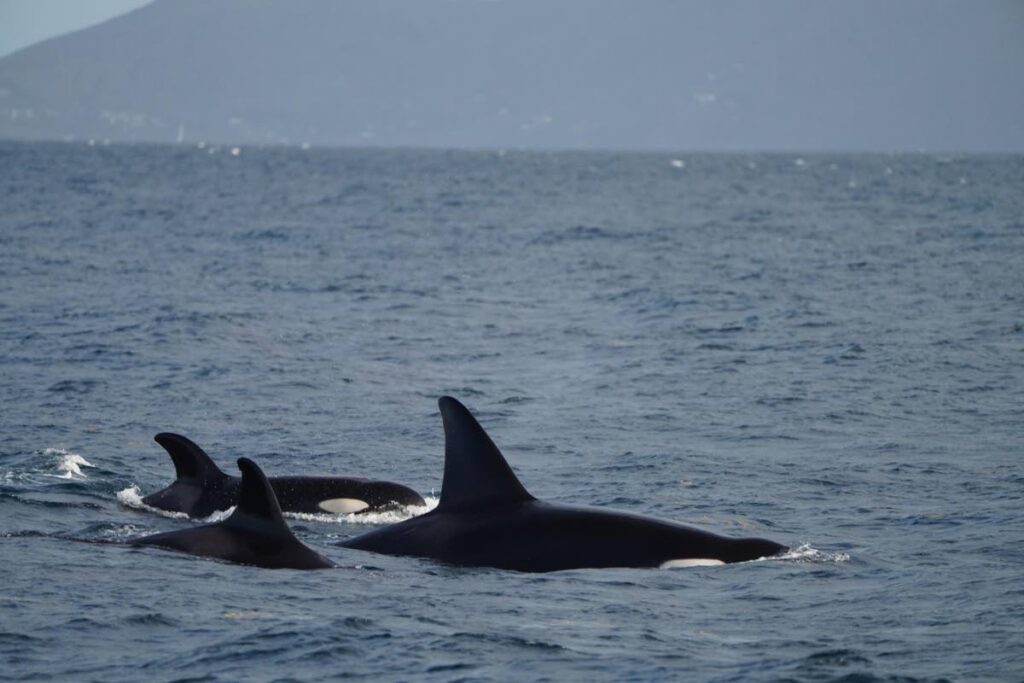
Syam Nath leads the TT Cetacean Sighting Network (TTCSN) in the growing body of research on cetaceans (whales, dolphins) in the Caribbean. With a background in bio-acoustics – he studied in Spain and France – he hopes to understand their language. He encourages sightings to be reported to info@ttcsn.org
Marine enthusiasts across the region have been astonished by recent sightings of orcas, also known as killer whales, in the warm Caribbean waters. These sightings challenge traditional beliefs about the habitat preferences of these iconic marine mammals, raising questions about their regional presence.
Eyewitness accounts from various Caribbean islands have documented the presence of orcas, a significant shift from their historically colder-water habitats. This phenomenon has led to inquiries about their migratory patterns and environmental factors contributing to their presence.
Like humans, orcas exhibit diverse cultural behaviours and dietary customs, including vocal dialects and prey preferences. Some orca populations prey on marine mammals, while others limit their buffet to fish and stingrays. Recent research suggests that orcas in the Caribbean also hunt leatherback turtles, considering them a delicacy.
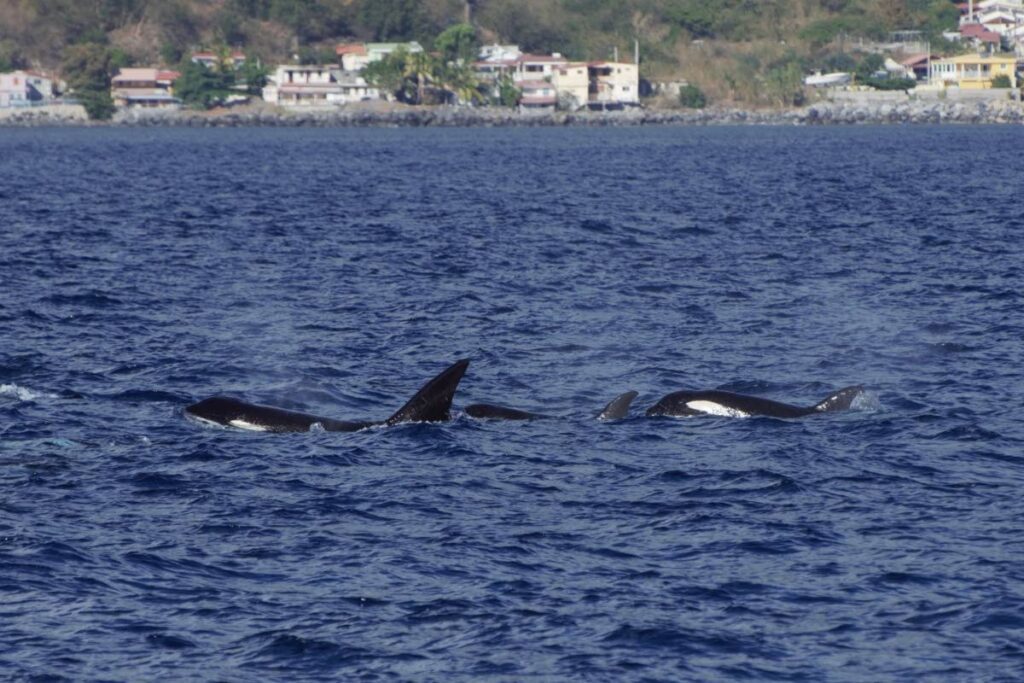
Dr Jaime Bolaños-Jimenez, a prominent marine biologist from Venezuela, has led the Caribbean Wide Orca Project, tracking 385 records of these majestic beasts in our region over the past two decades. He has confirmed the authenticity of five orca sightings in TT waters thus far. He notes that the group of three orcas (male, female, calf) sighted off the Trinidadian coast in the Gulf of Paria on October 22 matches the group of orcas widely observed off Central Venezuela on October 26.
Jeffrey Bernus, director of the Caribbean Cetacean Society (CCS), notes that orcas are rare sightings in the Lesser Antilles, despite their long presence in the Caribbean. He reports no aggression from these orcas, but instead highlights their curiosity.
“They are one of the rarest species sighted on expeditions, but the groups consist of ten individuals on average.”
“I’ve encountered killer whales around Martinique (April 2023) and St Vincent (March 2022),” recalls Dr Rocio Prieto Gonzalez, a Spanish biostatistician who has led scientific expeditions with the CCS.
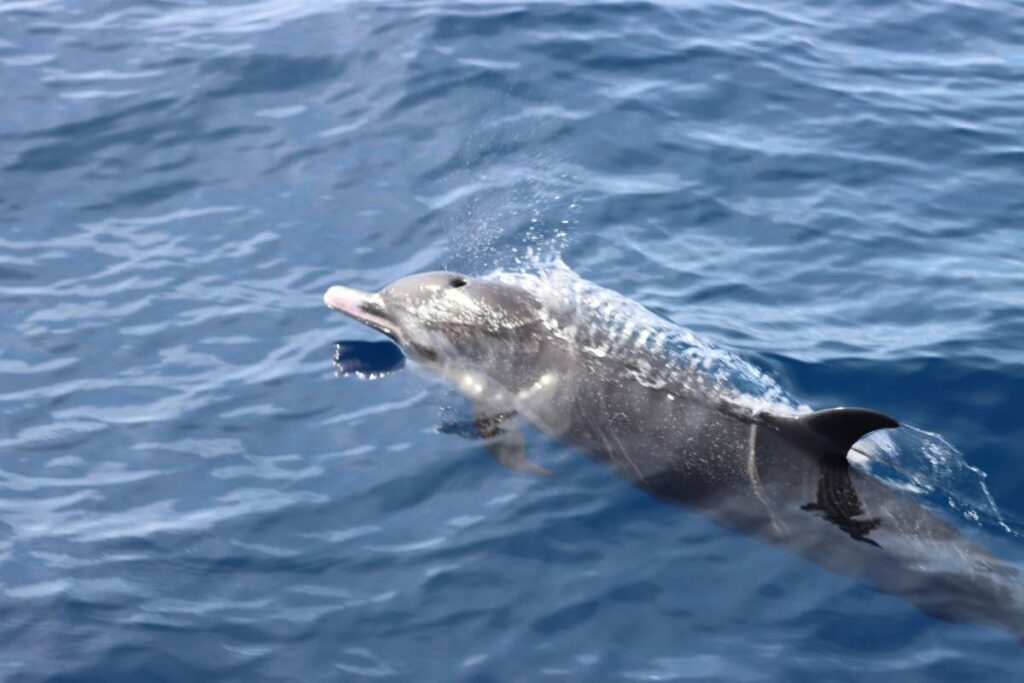
Despite meticulous documentation of orca sightings, the species remains vulnerable to hunting in some regions. In St Vincent and the Grenadines, orcas have been hunted for food and oil, despite protection under the SPAW (Specially Protected Areas and Wildlife) protocol.
Even locally, orcas have occasionally been caught by fishermen, although the historical practice of whaling has diminished since the colonial era, when whale oil was a major export.
In local research efforts, the TTCSN has initiated a long-term monitoring project to identify the whale and dolphin species around TT. This project involves deploying acoustic monitoring devices to capture audio recordings analysed by machine-learning algorithms for species differentiation – like the Alexa, Siri or Shazam apps, but for recognising animal sounds. Such programmes would gather invaluable data for regional and global benefits.
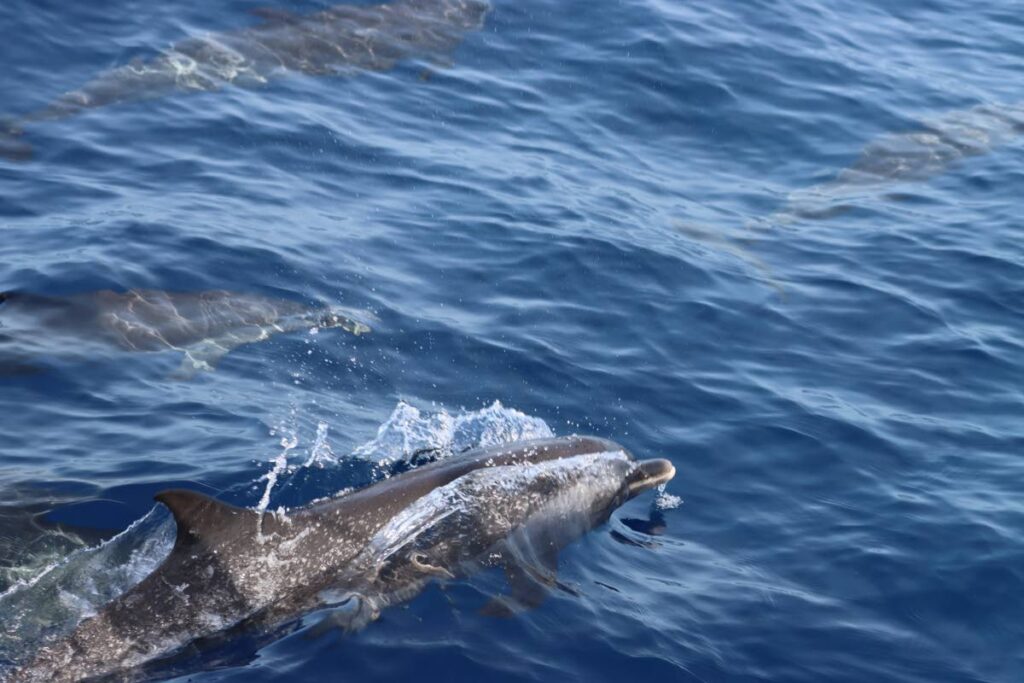
The scientific community eagerly embraces this unique opportunity to expand its understanding of orcas, advocating for responsible tourism practices to minimise disturbances to these remarkable creatures. As research continues, the Caribbean region positions itself at the forefront of marine exploration, offering insights into the adaptability of apex predators on an ever-changing planet Earth.
Dolphin stranding in Tobago: what to do
The live stranding of seven Atlantic spotted dolphins at Store Bay, Tobago, has prompted concerns among beachgoers and conservationists alike. Thanks to the courageous efforts of bystanders, the animals were eventually returned to sea, although it took several attempts.
Potential factors leading to marine mammal strandings include predator pursuit, disorientation caused by loud underwater noise, injuries from ship collisions, entanglement in fishing gear, diseases, and unusual weather or oceanographic events.
Encountering stranded marine mammals is rare, but requires immediate attention. I consulted the TT Marine Mammal Stranding Network (TTMMSN) for guidelines.
Marine mammals are protected by laws, and unauthorised handling or interference can have legal consequences.
Furthermore, it's essential to recognise that cetaceans (whales and dolphins) are mammals, not fish. They have lungs and breathe atmospheric air, so they must co-ordinate their movements to surface and breathe.
Ill marine mammals may be unable to do so and may carry infectious organisms that pose risks to humans and other animals.
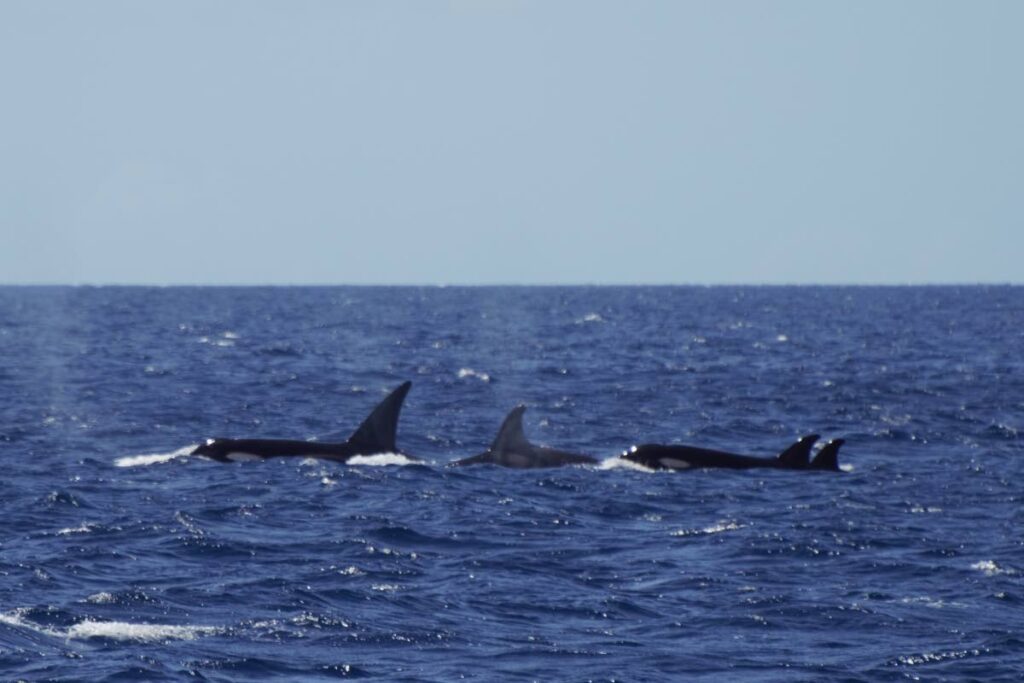
What to do: Gently pour water over the animal, avoiding the blowhole.
Cover the animal with wet towels, leaving the blowhole, eyes, and dorsal fin uncovered.
Create trenches under the fins and fill them with water to keep the animal cool. Erect a tent over the animal if possible.
What not to do: Avoid dragging or pulling the animal by the tail, which can cause severe injuries.
Do not return the animal to deep water without a veterinary professional's examination, as an ill animal can drown.
Remember to protect yourself from injury and infection. Avoid the mouth and tail to prevent bites or harm from a stressed animal.
Seek assistance; do not try to lift the animal alone.
Stay vigilant to avoid deep water or strong currents while supporting the animal.
Do not place your face over the blowhole, as exhaled air may contain harmful bacteria. Avoid contact with cuts, bruises, or lesions on the animal's body. Steer clear of bodily fluids or discharges.
Use hand sanitisers with 70 per cent ethyl alcohol and wash your hands thoroughly to prevent infection.
Who to call for help:
If you encounter a stranded marine mammal, do not try to handle it yourself. Instead, call trained first responders or the following authorities: TTMarine Mammal Stranding Network (481-4838) Trinidad Forestry Division – Wildlife (225-3835, 225-3828)
Tenderheart Animals Veterinary Clinic (645-3883)
Tobago Forestry Division – Wildlife (639-2273, 735-4369)
Coast Guard (634-4440, 634-1476)
TT Cetacean Sighting Network (683-7926).
You can also contact the nearest police station.
When reporting a stranded marine mammal, provide the following information: your name and phone number, the number of animals (dead or alive), date and time of sighting, exact location (include a landmark), and a description of the animal's characteristics.
Please follow these guidelines to ensure the safety of both the stranded cetaceans and yourself while contributing to the conservation and well-being of these sophisticated and intelligent aquatic national treasures.
Follow TTCSN on Instagram: @ttcsn_org OR e-mail: info@ttcsn.org


Comments
"Whales and dolphins in the Caribbean"